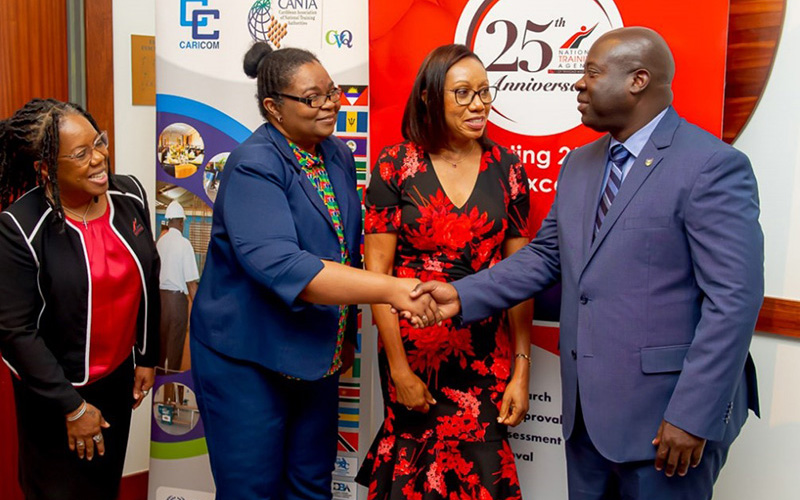
The validation of blended learning courseware aligned with regional occupational standards was a key outcome of a regional workshop convened by the Commonwealth of Learning (COL), the Caribbean Association for National Training Authorities (CANTA), and the National Training Agency of Trinidad and Tobago. Held in Port of Spain, Trinidad and Tobago, from 2-6 December 2024, the workshop brought together over 20 practitioners from Barbados, Belize, Grenada, Guyana, Jamaica, Saint Lucia, St Vincent & The Grenadines, and the host country to advance TVET innovation in the region.
This activity is part of a strategic partnership between COL and CANTA aimed at building resilience in TVET systems and strengthening skills development across the Caribbean to enhance employability and support decent work opportunities. The workshop focused on integrating blended learning approaches into the Guidelines and Criteria for Caribbean Vocational Qualifications (CVQ) and updating occupational standards to meet contemporary demands of workplace as well as blended learning. These efforts are designed to foster a competitive regional workforce and support the seamless mobility of certified skilled workers within the Caribbean Community (CARICOM) single market and economy.
Ms Gweneth Morris-Alexander, Acting Permanent Secretary of the Ministry of Education, Trinidad and Tobago inaugurated the workshop. In her opening remarks, she emphasised the importance of aligning TVET curricula with technological advancements and industry trends, stating, “Our agenda remains focused on revitalising TVET as a premier option and a dynamic entrepreneurial pathway for students. We are actively revising curricula at all levels to ensure relevance and adaptability in a rapidly changing world.” She also underscored the significance of collaboration and regional unity in addressing shared challenges faced by small island states.
Participants at the workshop validated critical courseware for competency-based training and assessments using blended learning approaches. The resources, comprising print and digital materials, align with regional occupational standards in four key areas: Photovoltaic (CVQ Level 2, green economy), Fishing Vessel Operations (CVQ Level 3, blue economy), Animation (CVQ Level 2, digital economy), and Dance Instruction (CVQ Level 2, orange economy).
Robert Okinda, Adviser: Skills at COL, explained that to prepare TVET for the future of work that is inherently blended or hybrid, it is essential to establish frameworks for transforming pre-service and in-service TVET, developing standardised open courseware resources, delivering competency-based training and assessments, providing professional development of practitioners for new specialist roles, and ensuring robust quality assurance, monitoring, and evaluation process.


